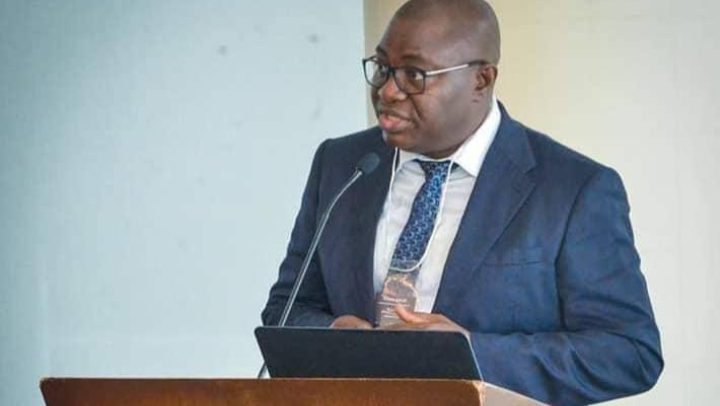Whether we like it or not, just like the family, the workplace is another source of primary relationships. And workplaces, like families, can be extremely toxic, oppressive, dysfunctional, and exploitative. In Ghana today, narcissists are running amok at every workplace. They bully other employees, ignore work protocols, and create a toxic and unproductive work environment. Because they are overly envious of people with superior skills, narcissists lie to undermine the competence and integrity of their co-workers, thereby creating a toxic and unsafe space. Because narcissists are selfish and power hungry, they build clandestine relationships with power players and high-status individuals in their organisation to snitch their coworkers, sow division and create confusion in their workplaces. While they demand excessive levels of loyalty, praise, and adulation from others, they will readily sacrifice anyone in their way to climb the corporate ladder. They do not engage in problem-solving or collaboration with others because they believe they know it all; nonetheless, they will not hesitate to take credit for the team’s efforts to elevate themselves.
Pervasive narcissism in the workplace is undermining socioeconomic development. The toxic workplace culture narcissists create stifles productivity, innovation, creativity, teamwork and performance. This toxicity drives good people away from public service. Across the globe, high performing public service organisations are using collaboration and teamwork to improve productivity, efficiency, and service delivery. In Ghana, however, public institutions are being destroyed by the cult of personality, a sense of entitlement, chaos, instability, and indifference to the common interest in both public and private spaces.
Even in our national politics, where our best and brightest are supposed to lead us by making wise decisions, mobilising and harnessing all talents for national development, a narcissistic relationship has developed between our national leadership and our people. This relationship is based on the benefits each party expects to extract from the other. For the powerful elites, they expect to benefit from both tangible and intangible ‘goods’, tangible in the form of wealth, and intangible in the form of adulation and power. Adulation fuels their need to feel special and superior. To gain power, they use the people as a voting block and strategic advantage over their rivals.
The people also benefit from this relationship. The well-connected few in the political sphere may benefit from ‘patronage’ for example, by leveraging the relationship to obtain money, influence, and positions. These people are obliged to reciprocate such generosity by demonstrating unfailing loyalty to their paymasters. In so doing, they become mercenaries of their powerful patrons. And why not? This form of relationship is precisely what attracts narcissists to the political realm, to be able to ‘pull the strings’ in the dark rooms to satisfy their narcissistic supply because, they cannot compete on the basis of integrity and accountability.
Thus, the political relationships today are not necessarily based on the convergence of political ideology or shared values, but on a conglomeration of self-interested people ready to sacrifice each other to advance their own interests. Loyalty, principle, altruism, and decency are rare qualities in our politics, and trust is the scarcest commodity of all. As political relationships become increasingly fluid and transactional, everyone, including altruistic, competent, well-meaning people, are viewed with suspicion and expected to be selfish, greedy, deceitful and manipulative. Anyone who deviates from these expectations is considered weak. For example, late President Mills was considered weak because he was empathetic and authentic.
The Ghana problem therefore stems from the pervasive narcissism at all levels of our society. While successive governments have framed the unethical practices in our public institutions as capacity issues, the destructive influence of narcissism has been overlooked. Until we address the over-arching problem of narcissism in our public spaces, the current culture of mediocrity, shallow values, confusion, deceitfulness and wilful blindness will prevail. We will continue to devalue intellect, hard work, empathy, and collaboration, which are the essential qualities we need to develop.
Today, many people have been compelled to conform to the culture of dysfunction and toxicity for their own survival. The few who resist conformity become the target of malicious attacks. For example, the Finance Minister, Mr. Ken Ofori Attah, is on the chopping block for taking courageous action to confront the wealthy grifters who swindled public funds in the banking sector. Similarly, Dr. Bawumia’s superior intellect, humility, and hard work on digitisation of the economy is being belittled, ridiculed and attacked by people who are jealous and threatened by his accomplishments. Even our well respected leaders such as Otumfo Osei Tutu, Ya Na, and the Chief Imam, who are fulfilling the important function of peacemaking and reconciliation, are being denigrated in the social media by young people who are so disillusioned with our leadership that they don’t trust anyone anymore.
In conclusion, narcissists are terrorists, who, if left unchecked, will destroy every relationship of trust and every institution in the country. Fortunately, the Ghana problem can be addressed if the government provides early family intervention programmes such as the “Triple P Parenting” programme and revamps the child protection system to alleviate child poverty, violence and neglect. The education curriculum must include mandatory courses on mindfulness and empathy to teach young people the values of compassion and altruism. Further, the school system must incorporate volunteerism as a credit course to inspire communal values. Similarly, recruitment in the public service must be transparent, meritorious and accountable. The culture of lobbying for positions must stop in order to attract high-quality people into the public service. Narcissists have the advantage in lobbying because they are skilled in the dark arts of manipulation and self-promotion. If narcissists are allowed to continue to terrorise the people through lies and fear in public spaces, decency, integrity, competency and trust will flee because the first lie always wins.
Written by Kwame Attakora Abrefah
Attorney, Edmonton, Canada.


